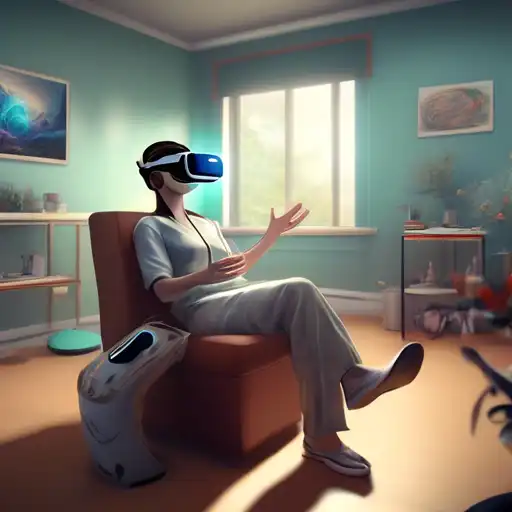The Transformative Role of Virtual Reality in Therapeutic Practices
Virtual Reality (VR) technology has transcended its initial entertainment-centric applications, venturing into the realm of therapy and mental health. This innovative approach is revolutionizing traditional therapeutic methods, offering immersive experiences that aid in the treatment of various psychological conditions. From anxiety disorders to PTSD, VR therapy is proving to be a game-changer in the mental health sector.
Understanding VR Therapy
VR therapy involves the use of virtual reality technology to create simulated environments for therapeutic purposes. Patients are immersed in a controlled, virtual world where they can confront and work through their issues under the guidance of a therapist. This method has shown remarkable efficacy in treating phobias, anxiety, and even chronic pain.
Applications of VR in Therapy
The applications of VR in therapy are vast and varied. Below are some of the key areas where VR is making a significant impact:
- Exposure Therapy: VR allows patients to face their fears in a safe and controlled environment, making it an effective tool for treating phobias and PTSD.
- Pain Management: Through distraction and immersion, VR has been used to reduce perceived pain levels in patients undergoing painful medical procedures.
- Social Skills Training: Individuals with autism or social anxiety can benefit from VR simulations that teach and reinforce social interactions.
- Stress Reduction: VR environments designed for relaxation and mindfulness can help reduce stress and improve mental well-being.
The Benefits of VR Therapy
VR therapy offers numerous advantages over traditional therapeutic methods. It provides a safe space for patients to explore and confront their issues without the real-world risks. Additionally, VR therapy can be tailored to each individual's needs, making it a highly personalized form of treatment. The immersive nature of VR also enhances engagement and motivation, which are crucial for successful therapy outcomes.
Challenges and Considerations
Despite its benefits, VR therapy is not without its challenges. The cost of VR equipment and the need for specialized training for therapists can be barriers to widespread adoption. Furthermore, the effectiveness of VR therapy can vary depending on the individual, necessitating further research to optimize its application.
The Future of VR in Therapy
The potential of VR in therapy is immense, with ongoing research exploring new applications and improvements in technology making VR more accessible. As we continue to uncover the benefits and address the challenges, VR therapy is poised to become an integral part of mental health treatment.
For those interested in exploring more about innovative therapies, check out our article on The Future of Mental Health Treatment.
